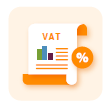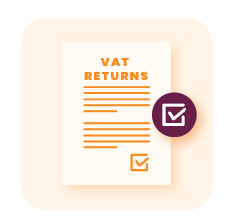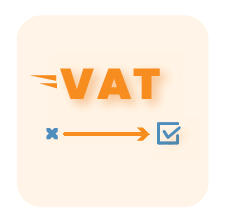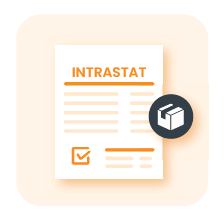Reverse Charge & “Call Off Stock” in Portugal
In accordance with Articles 194-199b of the EU VAT Directive, all EU Member States, including Portugal, have implemented reverse charge provisions. These provisions allow Member States to designate the recipient of certain cross-border services and domestic supplies as the taxable person liable for paying VAT.
Read more below on the reverse charge application in Portugal as well as all about “Call Off Stock”.
Selling in Portugal?
Non-established businesses
For non-established companies in Portugal, VAT on domestic supplies of goods to Portuguese companies must be handled by the purchasing companies. This implies that foreign entities not registered for VAT in Portugal should not apply VAT on their domestic supplies of goods to Portuguese businesses, instead, the VAT is managed on a reverse charge basis by the purchasers.
Regarding service provision, the reverse charge mechanism is used when services are provided by non-established companies in Portugal (those without a local seat or business location) to a VAT-registered purchaser in Portugal. This is irrespective of the foreign service provider’s VAT registration status in Portugal. However, this rule does not apply to services related to certain real estate for which the supplier is VAT registered in Portugal.
Portugal – “Call off stock”
A “call-off stock” scenario arises when a non-resident supplier sends products to be stored in the customer’s country, often at the customer’s premises. The consumer takes the products from the stock as needed. It is only at this moment of withdrawal that the customer legally acquires ownership of the goods from the overseas supplier.
Simplifying the EU’s call-off stock regime
On January 1, 2020, the EU standardized call-off stock arrangements across its member states. According to the new rule, the physical movement of goods to another EU Member State doesn’t constitute a vatable transaction; instead, it’s the later transfer of ownership of these goods that does. This movement is considered an intra-community supply of goods by the supplier and an intra-community acquisition by the recipient.
The call-off stock rules apply only when certain criteria are met:
- The supplier, or a third party on their behalf, must send goods to another Member State for a recipient who will later become the owner under a pre-existing agreement.
- The supplier should not have an established business or a fixed establishment in the Member State where the goods are delivered.
- The goods’ recipient, who will later acquire ownership, must be VAT-registered in the Member State where the goods are supplied.
- The supplier is required to maintain a ‘call-off stock register’ detailing the transfer of goods to support the call-off stock simplification claim. This transfer must also be recorded in the EC Sales List (ESL), identifying the recipient and their VAT ID in the Member State of supply.
- The actual supply of goods to the intended recipient from the stored location must happen within 12 months of the goods’ arrival.
If these conditions are met, the call-off stock regime is mandatorily applied.
Last Updated: 30/11/2023
Disclaimer
The information provided by Global VAT Compliance B.V. on this webpage is intended for general informational purposes only. Global VAT Compliance B.V. is not responsible for the accuracy of the information on these pages, and cannot be held liable for claims or losses deriving from the use of this information. If you wish to receive VAT related information please contact our experts at support@gvc.tax








